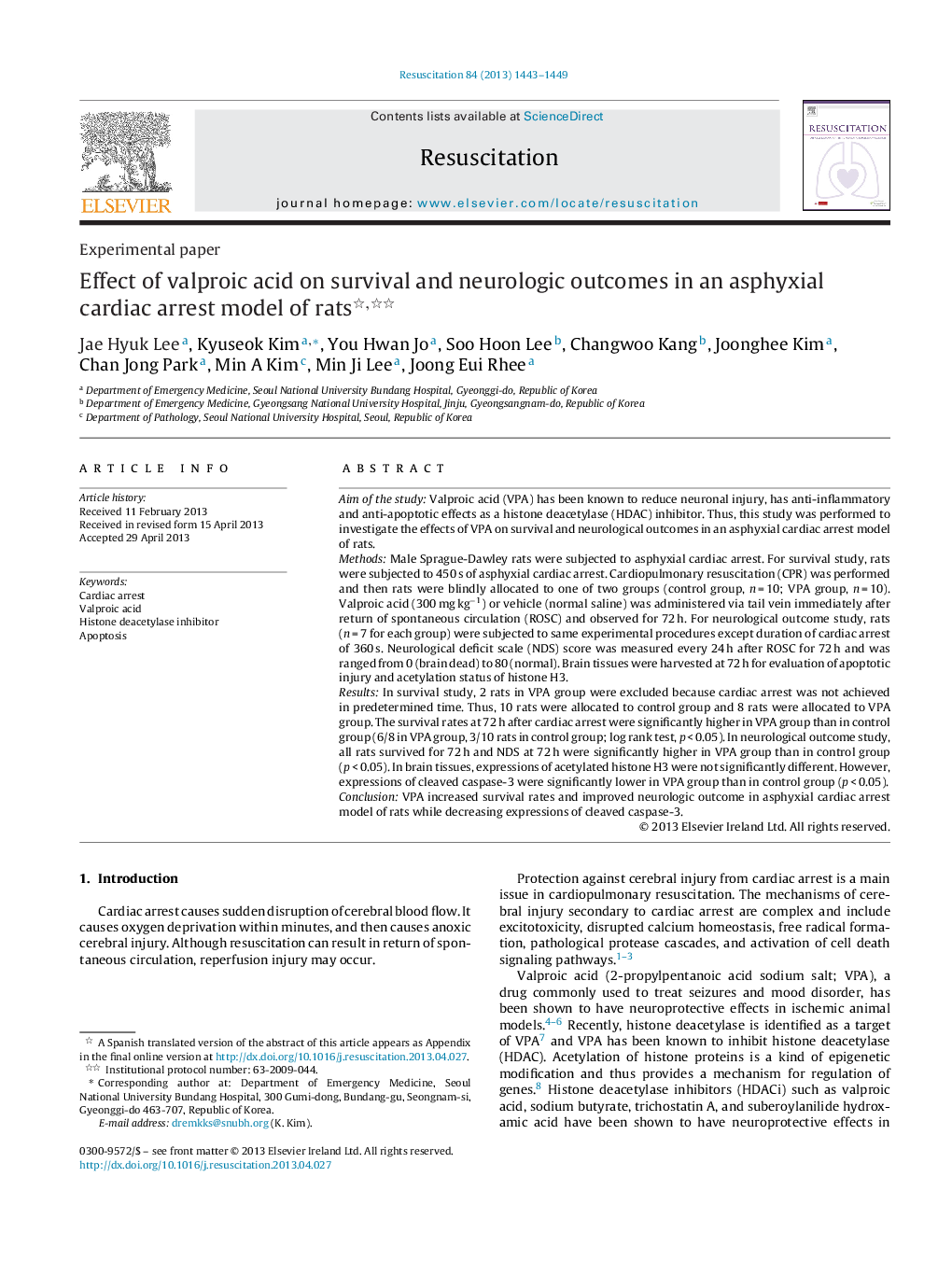| Article ID | Journal | Published Year | Pages | File Type |
|---|---|---|---|---|
| 3008088 | Resuscitation | 2013 | 7 Pages |
Aim of the studyValproic acid (VPA) has been known to reduce neuronal injury, has anti-inflammatory and anti-apoptotic effects as a histone deacetylase (HDAC) inhibitor. Thus, this study was performed to investigate the effects of VPA on survival and neurological outcomes in an asphyxial cardiac arrest model of rats.MethodsMale Sprague-Dawley rats were subjected to asphyxial cardiac arrest. For survival study, rats were subjected to 450 s of asphyxial cardiac arrest. Cardiopulmonary resuscitation (CPR) was performed and then rats were blindly allocated to one of two groups (control group, n = 10; VPA group, n = 10). Valproic acid (300 mg kg−1) or vehicle (normal saline) was administered via tail vein immediately after return of spontaneous circulation (ROSC) and observed for 72 h. For neurological outcome study, rats (n = 7 for each group) were subjected to same experimental procedures except duration of cardiac arrest of 360 s. Neurological deficit scale (NDS) score was measured every 24 h after ROSC for 72 h and was ranged from 0 (brain dead) to 80 (normal). Brain tissues were harvested at 72 h for evaluation of apoptotic injury and acetylation status of histone H3.ResultsIn survival study, 2 rats in VPA group were excluded because cardiac arrest was not achieved in predetermined time. Thus, 10 rats were allocated to control group and 8 rats were allocated to VPA group. The survival rates at 72 h after cardiac arrest were significantly higher in VPA group than in control group (6/8 in VPA group, 3/10 rats in control group; log rank test, p < 0.05). In neurological outcome study, all rats survived for 72 h and NDS at 72 h were significantly higher in VPA group than in control group (p < 0.05). In brain tissues, expressions of acetylated histone H3 were not significantly different. However, expressions of cleaved caspase-3 were significantly lower in VPA group than in control group (p < 0.05).ConclusionVPA increased survival rates and improved neurologic outcome in asphyxial cardiac arrest model of rats while decreasing expressions of cleaved caspase-3.
